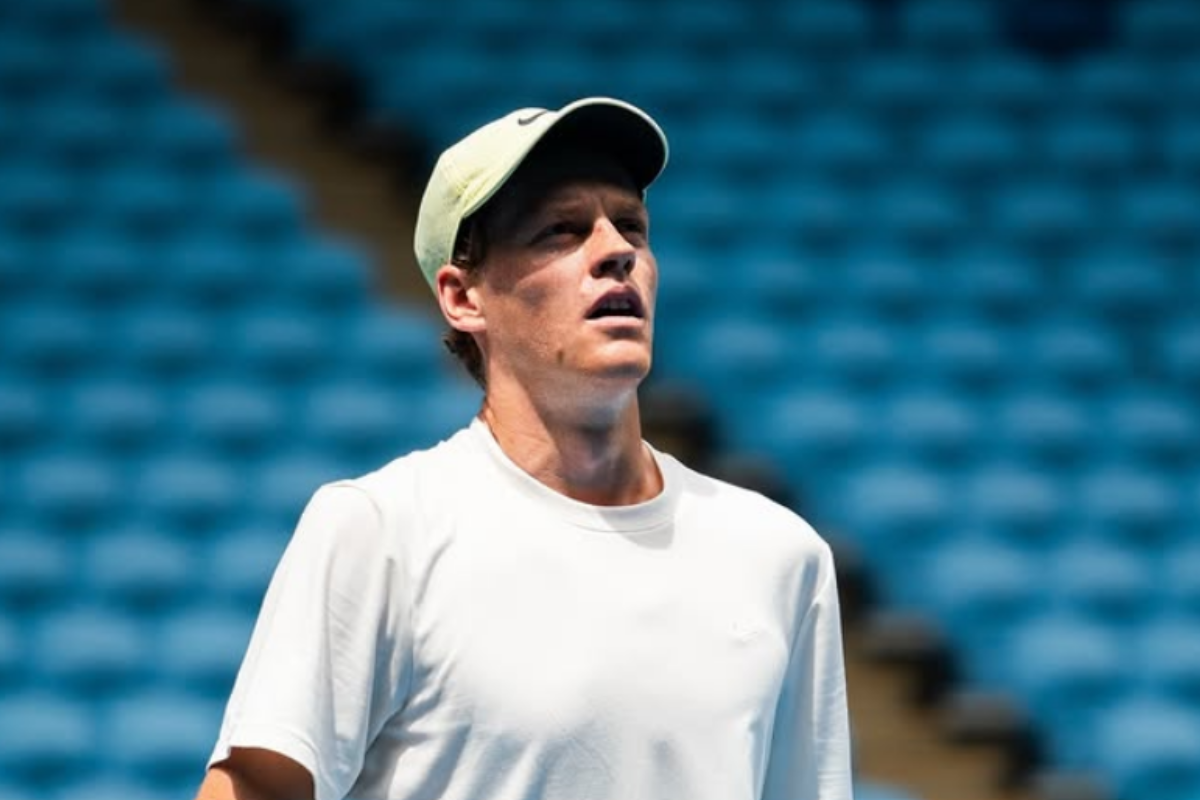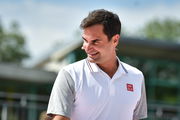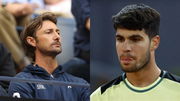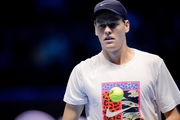
Imago
Credits – Instagram / @janniksin

Imago
Credits – Instagram / @janniksin
Jannik Sinner arrived in Shanghai feeling confident and ready to defend the title he captured in 2024. The reigning Shanghai Masters champion made a strong start to his campaign, cruising past Daniel Altmaier 6-3, 6-3 to reach the third round. But on Sunday, his title defense came to a sudden end as he was forced to retire from his third-round clash against the Netherlands’ Tallon Griekspoor due to a leg injury. While many fans are hoping that the extent of the injury is not too severe, Sinner is also drawing criticism for his decision to retire.
Watch What’s Trending Now!
Former Italian pro and current Eurosport and OA Sport analyst Guido Monaco weighed in on the situation, suggesting that the world No. 2 could have handled things better. Monaco believes Sinner, overwhelmed by cramps, should have been more tactical in how he managed the situation on court.
“It is quite possible that after having played a tournament a few days earlier (won, ed.) and two consecutive matches in another tournament with little time to recover, such a situation may arise in this climate,” Monaco explained. He went on to suggest that, “Perhaps in the future, he could act with more malice, by asking for a medical dead time at the first signs and justifying this with a small contracture. Indeed, according to the regulations, cramps are not considered an injury and cannot be treated.”
ADVERTISEMENT

Imago
BEIJING, CHINA – SEPTEMBER 29: Jannik Sinner of Italy competes in the Men’s Singles Quarterfinal match against Fabian Marozsan of Hungary on day 8 of the 2025 China Open at the National Tennis Center on September 29, 2025, in Beijing, China. PUBLICATIONxNOTxINxCHN Copyright: xVCGx 111593950849
And Monaco’s point isn’t without merit. The ATP rulebook clearly distinguishes between cramps and legitimate injuries, meaning players aren’t allowed medical treatment for cramping, a rule that has caught many off guard, including Novak Djokovic at times, who’s been known to stretch breaks to buy time. In that sense, Monaco’s advice reflects a hard truth of modern tennis: sometimes being smart means bending the gray areas of the rulebook to survive brutal conditions. And in Shanghai’s punishing humidity, such know-how can make all the difference.
Griekspoor was leading 6-7(3), 7-5, 3-2 when Jannik Sinner began visibly struggling with cramps in his right thigh. Despite taking brief pauses to recover, his condition only got worse as he limped between points and kept massaging his leg in the brutally humid Shanghai evening at the Qizhong Forest Sports City Arena. For Sinner, who’s still figuring out how to manage his body through the grind of back-to-back tournaments, this might serve as a tough but valuable lesson in the fine art of survival, a skill that often separates seasoned veterans from rising stars.
ADVERTISEMENT
Anyway, with the retirement, not only did Sinner miss the chance to defend his Shanghai points, but he also lost some momentum in his chase for the year-end World No. 1 ranking. And indeed, the Italian wasn’t the only player pushed to the limit by the grueling conditions at the Shanghai Masters.
ADVERTISEMENT
More stars battle the same fate as Jannik Sinner
Casper Ruud came into Shanghai riding a wave of confidence after a strong showing at the Laver Cup and a semifinal run at the Japan Open, where he nearly took down Carlos Alcaraz. He was eager to keep that momentum going and pick up some valuable points in the Race to Turin. But things didn’t go as planned. Ruud’s campaign at the Shanghai Masters came to a sudden halt when he was forced to retire from his Round of 64 match against Belgium’s Zizou Bergs while trailing 1-4 in the third set.
The match itself was a battle. Ruud came out firing, taking the opening set 6-3, but Bergs responded with renewed energy to claim the second 7-5. By the third, the Norwegian’s physical struggles became clear, cutting short what could have been a deep run. For Ruud, it’s another frustrating chapter at a tournament that’s never quite gone his way, despite his strong form heading in.
Top Stories
Roger Federer Raises Comeback Hopes After Stunning Casper Ruud at Australian Open

Iga Swiatek Calls Out Reporter for Making Draw Blunder at Australian Open

Carlos Alcaraz Reveals How He Plans on Winning Australian Open Without Juan Carlos Ferrero

Jannik Sinner Breaks Silence on the Doping Cloud That Nearly Drove Him Away From Tennis: “Knew the Ending”

Aryna Sabalenka and Coco Gauff Make Feelings Clear on Australian Open’s Record-Breaking Pay Hike


Imago
Tokyo, Japan. 25th September, 2025. Carlos Alcaraz of Spain defeated Casper Ruud of Norway in the men’s singles semi-finals in Tokyo at the ATP500 Kinoshita Group Japan Open Tennis Championships 2025. Noxthirdxpartyxsales PUBLICATIONxNOTxINxJPN aflo_305265803
Adding to the challenges, players across the field have been vocal about the brutal conditions in Shanghai. Frenchman Arthur Rinderknech shared his perspective after defeating Alex Michelson, admitting just how tough it was to compete in the suffocating heat and humidity. “It’s hard to breathe on the court. It’s tough right from the warm-up. There’s crazy humidity. There’s a part of the battle that has nothing to do with tennis. It’s about survival, about managing to find ways to prevail,” he said.
ADVERTISEMENT
Indeed, it’s becoming clear that the Shanghai Masters this year is as much about endurance as it is about skill. Between the oppressive weather and the draining back-to-back tournaments on the calendar, players are being tested in every possible way. That said, should the ATP reconsider its rules on treating cramps, given how tough the schedule and weather can be? Share your thoughts in the comments.
ADVERTISEMENT
ADVERTISEMENT
ADVERTISEMENT

